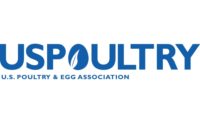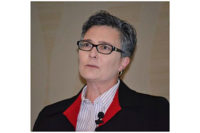“Food safety is key, and it is critical,” said Dr. Sarah Birkhold, manager of technical services, Nestle Purina PetCare, while speaking to attendees at USPOULTRY’s 2014 Poultry Protein & Fat Seminar in Nashville, Tenn. In addition to addressing the changing environment and needs regarding pets, Dr. Birkhold reviewed the expectations and technical deliverables Nestle Purina PetCare seeks from its’ suppliers during her presentation on Pet Food Customer Expectations. She emphasized the need for raw material quality, ingredient quality, consistency and relationships.
“We look at leveraging the relationships we have across our own companies and our industry. We want to leverage, today, what is available from a high quality ingredient perspective and what may be available in the future,” remarked Dr. Birkhold.
Andy Brashear, area environmental manager, Simmons Foods, discussed why minimizing water use is important to plant efficiency in his presentation on Plant Efficiencies Case Studies: Water. Brashear reviewed the cost of potable water, potential impact on ground water, associated cost of wastewater treatment and methods to minimize water use. Brashear concluded by describing the benefits of a new waste heat evaporator installed to help reduce wastewater use. The waste heat evaporator allows Simmons to process high strength waste streams, reduces Biochemical Oxygen Demand (BOD), Total Kjeldahl Nitrogen (TKN) and phosphorus loading on wastewater and reduces sludge loads.
In his presentation on Leaks with a Drop of Perspective, Brandon Lairmore, director of operations, Pilgrim’s, remarked that “the biggest opportunity from a rendering standpoint is eliminating leaks.” Lairmore observed that a leak is technically an accident and reviewed various types of leaks and the costs associated with each. He also discussed the need to keep systems tight, efficient, clean and well lit.
Source: USPOULTRY
.jpg?height=200&t=1666223297&width=200)


Report Abusive Comment